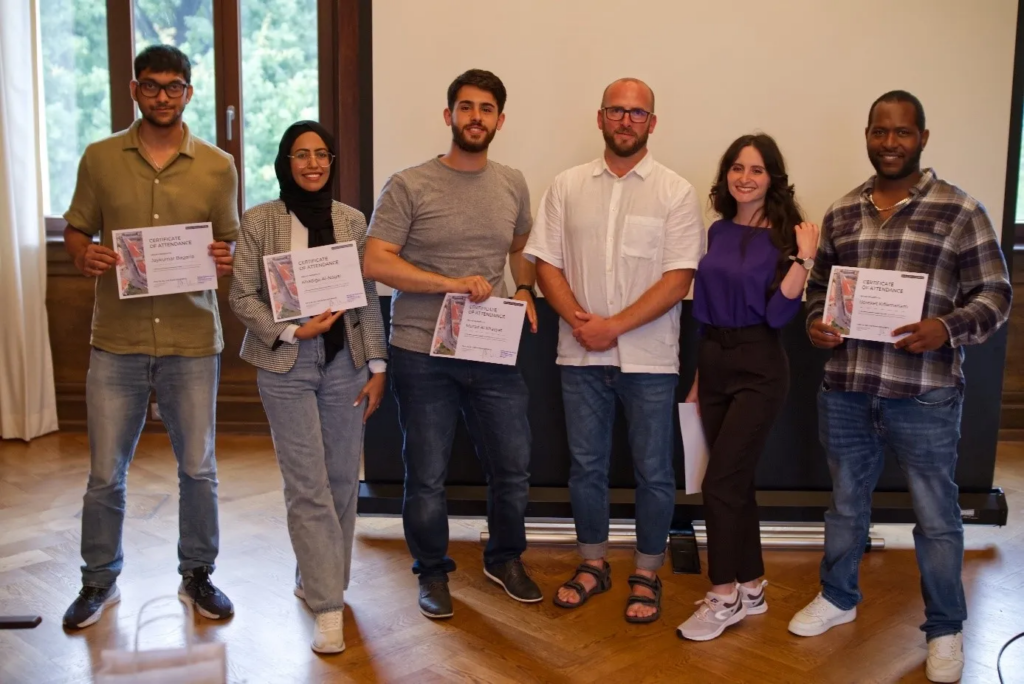“City&Traffic,” the international summer university focusing on urban and transportation planning, was held in Germany. As in every year, students from Széchenyi István University participated in the 27th annual planning exercise.
“How could transportation in Weimar work better?” This question was tackled by about 35 students from seven countries at the recently held “City&Traffic” international urban planning workshop. Since its inception in 1996, the summer university has become a tradition for Széchenyi István University, with students from Győr attending each year and the University hosting the event five times.
This year, the Bauhaus University in Weimar hosted the professional programme, with the German hosts welcoming delegations from the Czech Republic, Austria, Poland, Serbia, Slovenia, and Hungary. The Hungarian delegation consisted of students from Széchenyi István University, accompanied by Dr. Dániel Miletics, Associate Professor at the Faculty of Architecture, Civil Engineering and Transport Engineering, for the six-day event. “The aim of the workshop is to allow students from different countries to work on professional topics together, learning from each other. The young participants engage in constructive debates on specific project tasks, thereby improving their language skills,” explained the lecturer, who participated in the planning exercise as a student at the beginning of his career.
Over the years, the programme’s popularity has steadily increased, with several institutions joining the initiative. One thing, however, has remained unchanged: there is no “City&Traffic” without Széchenyi István University. Dr Miletics mentioned that several lecturers from Győr have actively contributed to maintaining this tradition over the years, including Dr Zsuzsanna Tóth-Szabó, Dr Emese Makó, and Bence Szántósi. “This workshop was co-founded with the universities of Bratislava and Erfurt, established by Professor Csaba Koren and his international colleagues. Today, students studying programmes such as Civil Engineering, Transport Engineering, Urban Planning, Architecture, Water Engineering, and Environmental Engineering, have completed this planning exercise.” The diversity is also reflected in the participating universities, with delegations coming from major cities across Europe, from Belgrade to Kraków to Vilnius.

The delegation from Győr: Jaykumar Bagaria, Khadiga Al-Nagar, Murad Al Khayyat, Dr Dániel Miletics, Hind Amer and Basa Bereket.
This year was the first time that the Hungarian team consisted exclusively of international students: Indian, Yemeni, Jordanian, Syrian, and Ethiopian students represented Széchenyi University. “It was a very positive experience that foreign colleagues praised our students, who were characterized by active participation, creativity, and courage throughout the programme,” proudly added the Associate Professor from the Department of Transport Construction and Water Engineering. He emphasized that participation is an excellent opportunity to apply professional knowledge, furthermore with travel, accommodation, and two meals a day being free for the students.
The tasks are multifaceted each year: some groups must address public transportation issues, others need to find solutions to transportation safety problems, and they often face urban development challenges. This year, the workshop participants had to propose solutions to real transportation and urban planning difficulties in Weimar, with one mini-project focusing on the functional redesign of a road dividing the university campus.
During the short summer university, the students visited the Bauhaus Museum in Weimar and had the opportunity to present their ideas to the public at the event’s conclusion, which was combined with the university’s annual project exhibition. Dr Miletics was pleased to report that his students performed excellently in the professional programmes, and that the workshop, next year to be held in the Czech Republic, was an extremely positive experience for them.






